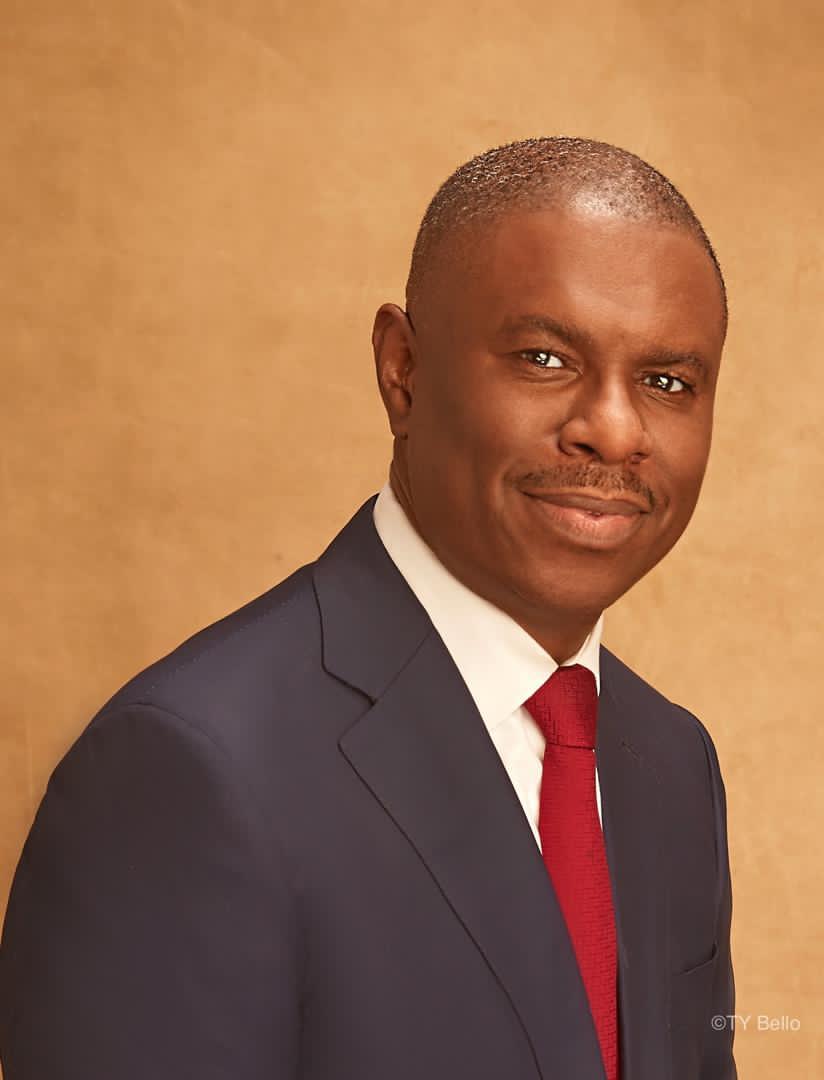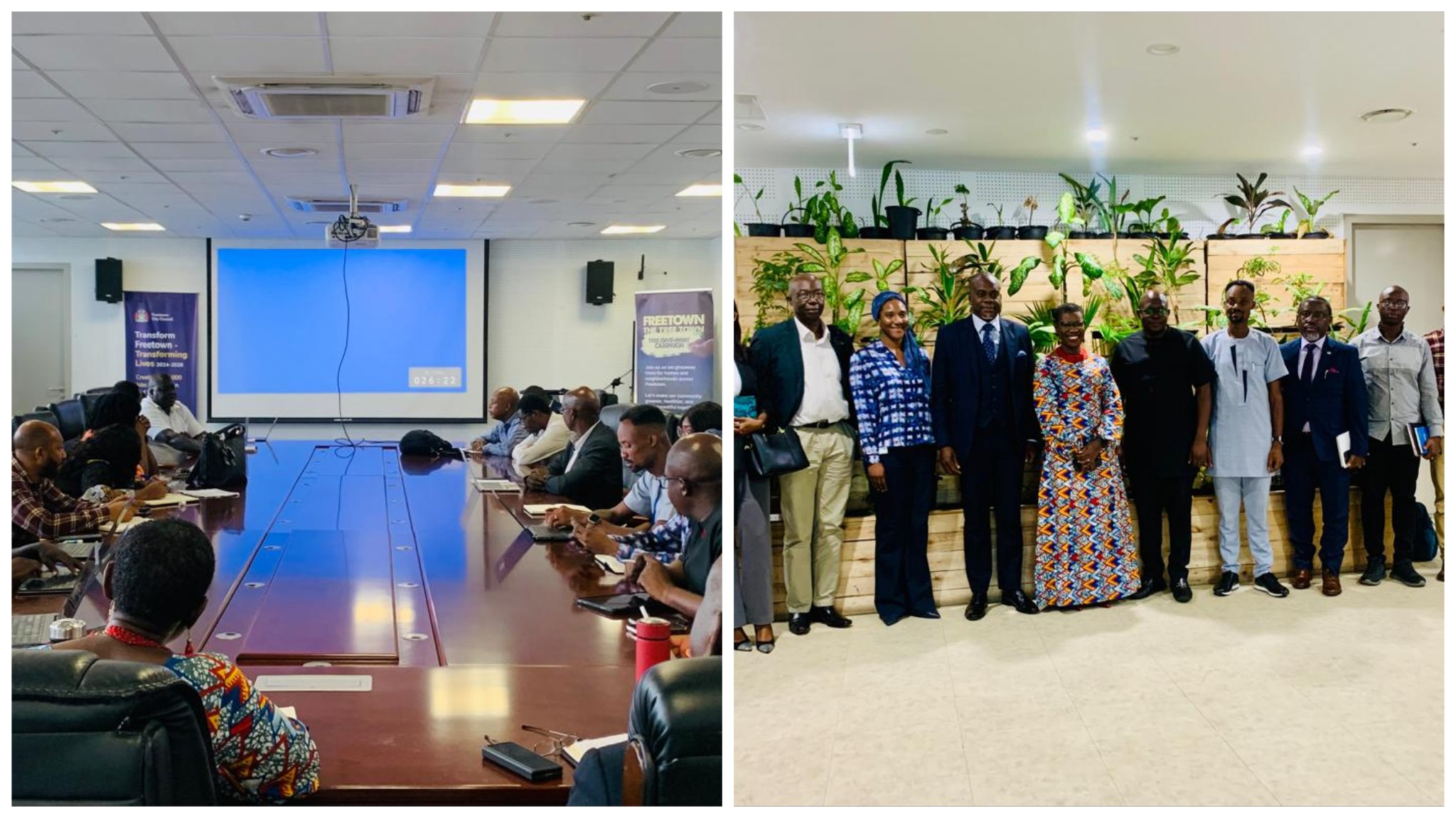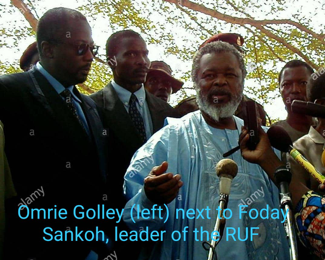
THE OMRIE GOLLEY STORY – EPISODE 4
DIALECTICS OF THE PEACE PROCESS, WITH THE FAILURE OF THE ABIDJAN PEACE ACCORD, THE INCARCERATION OF FODAY SANKOH, AND THE MILITARY COUP AGAINST TEJAN KABBAH
By: Noellie Marionette-Chambertin
Days after the historic meeting in Yamassoukro, Republic of Ivory Coast in March 1996, the leader of the NPRC Julius Maada Bio, handed over the reign of Government to President Ahmad Tejan Kabbah who swiftly formed a new administration and continued with efforts to achieve peace and reconciliation in the country. Omrie Golley had returned to London by then to continue with his law practice. Notwithstanding, however, he maintained contacts with the RUF whose main officials had decamped to Abidjan, same Ivory Coast since the meetings in the second city of Yamoussoukro. In Ivory Coast, Foday Sankoh the RUF Leader had been provided with a home for himself and his immediate entourage.
Golley also reached out to the new SLPP elected President Tejan Kabbah who he had met a number of years previously, and who he was infact related to, through Kabbah’s marriage to Patricia Kabbah, nee Tucker, of Bonthe. Mrs Patricia Kabbah was a relative of Golley’s father, the Honourable Mr Justice Omrie Golley, who had retired a number of years earlier, after a distinguished legal career in Sierra Leone.
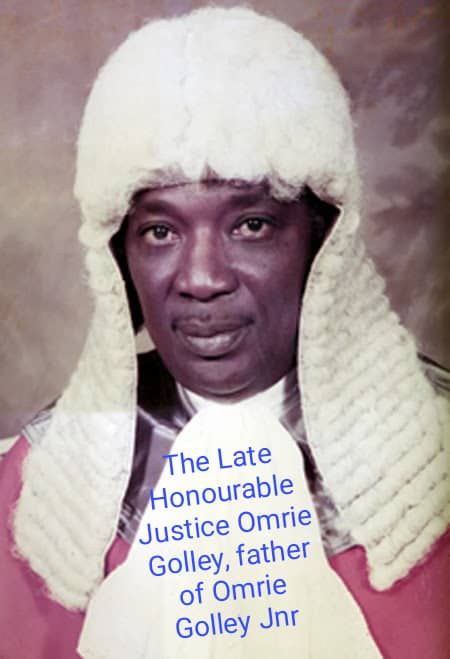
Golley’s father started his legal career as Sierra Leone’s first UK trained Solicitor in November 1962, after graduating from the University of Hull with an honours degree in Law in 1958. He returned to Sierra Leone in 1962, and served in the judiciary in Sierra Leone. Initially he was Master and Registrar of the High Court in 1964. He was later elevated to the bench as a Judge of the High Court of Judicature, then later as a Justice of the Appeals Court. Golley Snr was awarded the MRSL (Member of the distinguished Order of the Republic of Sierra Leone) in 1985, before he retired from Government Service in 1989. The distinguished statesman died in retirement at his home in Windsor, England in July 2009.
Omrie Golley Jnr, who by 1996 was very active in trying to restore peace in Sierra Leone, remembers his relationship with President Tejan Kabbah in the early days of his administration in 1996 initially as being cordial.
Golley states:
“Former President Kabbah knew of the existence at the time of the organization that I had formed to promote peace, the National Convention for Reconstruction and Development (NCRD) and was fully aware of my contacts with the RUF at the time. In fact he encouraged me to maintain my contacts with the RUF leadership in the pursuance of peace”.
That initial cordial and mutually respectful relationship between Golley and Kabba as the war intensified was one of the main reasons that propelled Golley to subsequently become legal adviser and spokesman for the RUF movement from 1998 until the signing of the Lome Peace Accord in July 1999.
As a sequel to the story of the relationship between the two personalities, Tejan Kabbah was to announce on national television and radio in January 2006 that Golley had been arrested whilst leaving Freetown for London on allegations of subversive activities. Golley was later charged with Treason, and was only released 22 months after in November 2007, when a new administration that had emerged successful in national presidential elections, headed by former President Ernest Bai Koroma. The All Peoples Congress (APC) Party government had pronounced that after careful consideration, the charges against Golley had no evidential basis in law and that the charges were politically motivated.
As a way of flashback for my readers, one can recall that in 1996, Golley was determined that any peaceful resolution of the conflict in Sierra Leone which by that time had entered its 4th year moving inexorably to its 5th, had to be a sustainable one. So during that time, Golley made frequent contacts between the Government of Tejan Kabbah and that of the RUF headed by Foday Sankoh.
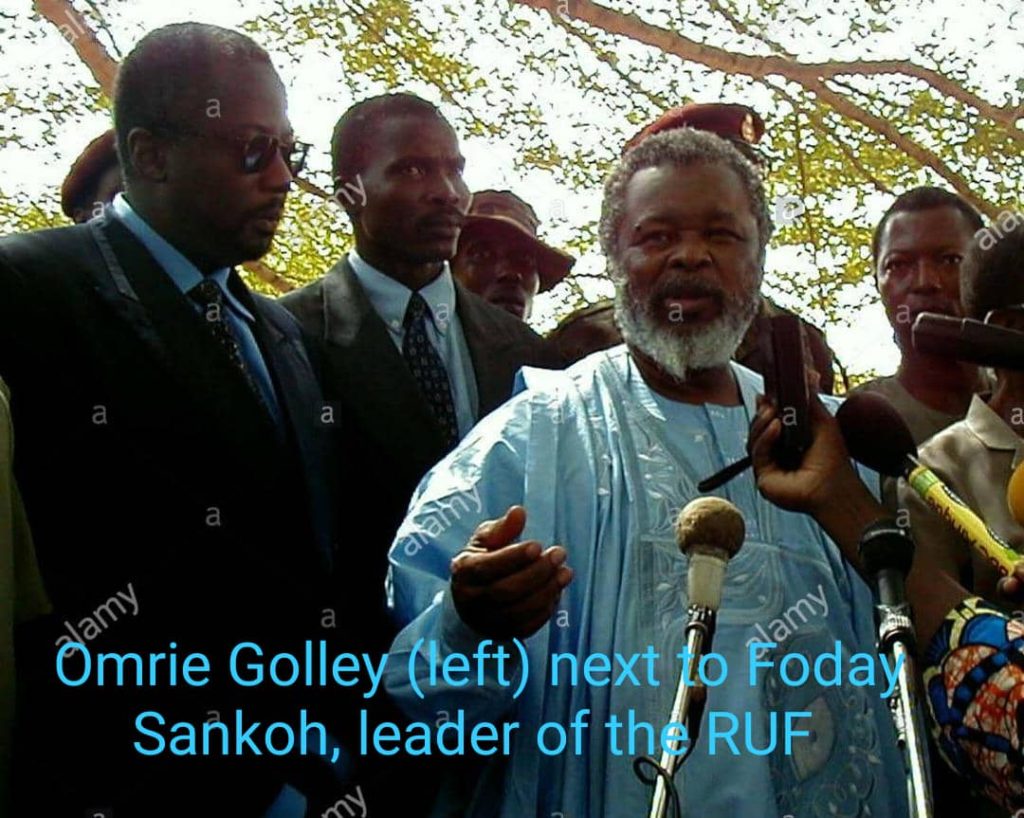
In the aftermath of the initial euphoria of the Yamassoukro encounter, it became swiftly apparent that the peace process had to be solidified and fermented with an Accord or Agreement which would deal with a permanent ceasefire, the disarming of all combatants involved in the fighting, together with structures to be set up to consolidate the peace and to transform the RUF into a political party with a view to entering the democratic process.
The Abidjan Peace Accord was signed on the 30th November 1996 and the main provisions called for the setting up of a Neutral Monitoring Group, the setting up of a Committee for the Consolidation of Peace, the removal of all mercenaries and foreign troops from the country, and the transformation of the RUF into a political party. On paper these provisions, had they been implemented to the letter, would have seen the start of a meaningful and sustainable peaceful settlement of the conflict. However, that was not to be. Not only did skirmishes continue between the Government troops and the RUF in different parts of the country, but both the Government and the RUF could not agree on the size or composition of the Neutral Monitoring Group.
In addition to these unfortunate events, in March 1997, Foday Sankoh, the RUF leader, was arrested on a visit to Nigeria, on allegations of weapons violations. Additionally, some senior officials within the RUF were abducted at this time.
There appeared to be a dangerous split within the RUF itself, with a number of its senior commanders accusing those members who had been abducted, as traitors and sympathizers of the Tejan Kabbah Government.
This incident was compounded by senior RUF officials in Freetown, issuing a statement calling for the replacement of their leader Foday Sankoh, following the abduction. This move was seen by others in the movement as proof positive that there was an unseen hand behind these events.
The unfortunate incidents referred to above in March 1997, created an intense climate of suspicion and distrust, not only between the Government and the RUF leadership, but within the ranks of the RUF movement itself.
Their leader had been incarcerated in Nigeria, and had denounced those members of the RUF that had been abducted by their comrades as traitors and puppets of the Kabbah administration.
Against this febrile backdrop, on the 25th May 1997, armed soldiers overthrew the Government of President Tejan Kabbah.
The peace process was in very serious jeopardy.
Note
For further enquiries on our episodes, please contact the writer:
Noellie Marionette-Chambertin
Phone number: +447535506716
Email: noelliechambertin@mail.com

